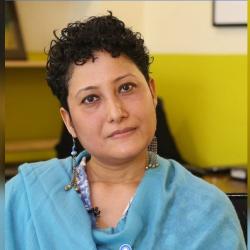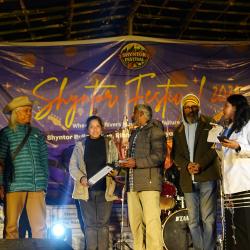India’s ‘Look East Policy’ concern for Burmese
India the largest democracy in the world has always been maintaining good relationship with its neighbors like Bhutan, Nepal, Pakistan, Bangladesh, Sri Lanka and Burma. The efforts are continue for a peaceful co-existence with all its neighboring countries. At a time when this country pleads for democracy in other countries and has welcomed the democratically elected governments in Nepal, Pakistan and Bangladesh, its attitude towards Burma (Now Myanmar) seems a bit different. This shift in its policy took place during the year 1990, when India launched its “Look East Policy” and began to support the military junta in Burma. Since India has embarked upon building a broad based relationship with the military junta including cooperation on defense, trade and investment, energy and natural resources, a series of agreements and Memorandum of Understanding (MoU) have already been signed, such as the construction of Sittwe port, the multi model Kaladan project and Energy and Petroleum Cooperation. India’s closer relationship with Burma’s junta and its cold approach to the people’s movement for human rights and democracy in Burma has raised concern amongst Indian civil society as they question whether India has abandoned the principle of humanist and idealist policy guided by Mahatma Gandhi and Jawahar Lal Nehru. Burma Centre Delhi, an organization formed by members from India and Burma civil society groups is out to work for restoration of peace justice, democracy and human rights in Burma. It still believes India is an important neighbor that can influence Burma in bringing about a democratic transition acceptable to the people of Burma. It may be recalled here that Burma was under British colonial rule for more than one hundred years. Since its independence on January 4, 1948 this country practiced a democratic parliamentary system under the leadership of the premier U Nu. This system continued for fourteen years only, when Burmese army staged a military coup overthrowing the democratically elected government and imposing oppressive military rule. The coup instigators, namely, the Revolutionary Council led by General Ne Win, abolished the constitution and suspended all democratic rights of the people. All legislative, executive and judicial powers were vested in the hands of Gen Ne Win. The military used guns to control the country according to their wishes, keeping a tight lid on the political activities of those who love democracy in the country. The military regime transformed itself into a ruling political party in the year 1974, which was named the Burmese Socialist Program me Party (BSPP). The BSPP ruled over the country for fourteen years until 1988, with single party dominated political system with the ideology ‘the Burmese way to socialism’. During these years the country became one of the poorest countries in the world. Therefore, in 1987 Burma was listed as a least developed country (LDC) by the United Nations. Due to deterioration of Burma’s economic situation and oppressive one political party rule on August 8, 1988, which is known as 8-8-88, the people (workers, monks, peasants, teachers, government servants and youth) of Burma led by the university students at Rangoon rose up as one to call upon the military rulers to abolish the ill-reputed one party system, demanding democracy and human rights in the country. The military responded with bullets against the peaceful demonstrators and killed more than 3,000 demonstrators throughout the country. After 8888 incidents, Gen Saw Maung took over the country on 18th September 1988 and renamed the ruling regime the State Law and Order Restoration Council (SLORC). Therefore in 1989 under the SLORC Burma was renamed as Myanmar to divert international attention and criticism. A multi-party general election was held in May 1990, in which the National League for Democracy (NLD) won a landslide victory. However, the military ignored the election results and did not hand over the people’s mandate to the winning party, instead imposing authoritarian rule and violently cracking down on the people’s pro-democracy movement. In spite of the repressive military rule for about fifty years the people aspiration for peace, dignity and democracy continues till now and Burmese people hope that India can play a better role to bring democracy back in their country.
Other Contents by Author
Assam Government has given a work order for construction of a ropeway project over Urvashi river Island to M/s Samir Damodar Ropeway Pvt Ltd; who have constructed four big size RCC pillars in the Umananda Island to install high structure for ropeway project. Getting this information a team of a NGO, namely, Citizens’ First, consisting of Ajay Dutta, Ex- MLA, Krishna Kanto Borooah, Jagannath Das, General Secretary of the Forum and renowned archaeologist, Dr Pradip Sarma, visited the site of construction on the Umananda Island and found that the said company has already occupied a portion of the island and piled deep inside its rock bed to raise RCC pillars. By its such act, the...
The people of Assam are likely to face serious flood and erosion during the new-year 2012 due to reluctance of state governments to take necessary steps to tackle the situation, despite the demand of All Assam Water Resource Contractors’ Association (AAWRCA). Speaking to the media people recently, Muhi Bargohain, President of AAWRCA, alleged that the state’s water resource department has not taken any step to get last year’s damaged embankments repaired till now. It is learnt that Assam’s Revenue and Finance departments have not approved the schemes related to it. It is well known fact that the northern districts of Lakhimpur, Dhemaji, Dibrugarh and Shivsagar etc...
Protest against use of Armed Forces (Special Powers) Act 1958, has shifted from extreme northeastern part of the country to the remote northern part. Now, demands are high by the Chief Minister of Jammu and Kashmir, Omar Abdullah, to withdraw at least partially, the aforesaid Act, from his state in order to bring peace in the troubled region of the country. It is alleged that in guise of the search for militants, the security personnel are misusing the Act and ‘harassing and torturing’ the innocent people of the state. The Union government is now facing an embarrassing situation due the state’s demand.
Similar demand for withdrawal of the AFSP Act1958 is long...
History repeats itself and it seems that our Union government is trying to get it repeated as early as possible by allowing foreign investments in every sector of industries and agriculture as well. The Union Cabinet by justifying 51 percent foreign direct investment (FDI) in retail trade has proved that it has no regards either for the poor people of the country or the Father of the Nation, Mahatma Gandhi, who cherished a dream to bring ‘Ram Rajya’ in the country by his followers. Now, the country is moving head very fast to ‘Ravan Rajya’. It has to be mentioned that Mahatma’s name is being utilized by our leaders to save the ‘corrupt politicians...
The anti-corruption movement launched by the Gandhian leader, Anna Hazare, has threatened a number of politicians, bureaucrats and big businessmen involved in various financial crimes against the country and the society. The issue of black money in Swiss banks and calling back the same to the country for investment and prosperity of the nation, has also threatened them of losing their unfair incomes. The United Progressive Alliance (UPA) government led by the Congress party, has been found involved in the practices leading to great sufferings of the countrymen. The Civil Society’s proposal in respect of the Lokpal Bill, has been ‘turned down’ by the Union cabinet...
Reacting to the recent ‘blatant lies’ of the Assam Power Minister, Pradyut Bardoloi, Krishak Mukti Sangram Samiti (KMSS) leader Akhil Gogoi made it clear that he is not opposed to the demand and need of power for the state, but he wanted to know the ‘secrets of the deal’ which made the state government to ignore all the facts related to the geographical and environmental needs of Assam.
Addressing the media persons in Guwahati recently, the RTI activist, Akhil Gogoi said that the power minister had given the history of Lower Subansiri Project. He said an unknown fact of this history was that the Central Electricity Authority (CEA) report of October 2001 gave rank...
Yoga Guru Ramdeva fighting to get back the Indian’s black money in the foreign banks to the country continued his fast from June 4, had to give up on 9th on demand of millions of countrymen, who wanted his precious life to be utilized in the welfare of mankind. His tirade against the ‘unholy’ politicians and bureaucrats, who are involved in top-level corruption continued during his fast and none of high- level officials approached to solve the issues raised by him. This was interpreted by a section of the society as the government was not interested in bringing back the black money in the country. Even the government was not interested to reveal the names of such persons,...
The Gauhati High Court directed petitioners Asian Centre for Human Rights and others in PIL No.6/2011 to provide practical and workable solutions to the issue of displacement of the Rabhas and Garos as submitted before the Court pursuant to the respondents States of Assam and Meghalaya and the Union Home Ministry within a week to act upon. It had earlier directed the petitioners on January 22 last to submit practical and workable solutions. Addressing the media persons the petitioner, Suhas Chakma, Director of Asian Centre for Human Rights said that he appeared in person before the Chief Justice, Madan B Lokur. The matter is listed for May 2011 after the state governments take necessary...
National Election Watch (NEW), a nationwide campaign comprising of more than 1200 NGOs and other citizen-led organizations working on electoral reforms, improving democracy and governance in India, has stepped up the pressure on political parties to demand accountability from them in the state of Assam as well. It announced several initiatives with the purpose of bringing transparency and accountability in the political system on February 17 last through a press conference organized in Guwahati Press Club.
Addressing the media persons the coordinator of the Assam Election Watch, Tasaduk Ariful Hussain, said that different civil society organizations, eminent citizens, media, senior...
Trade is the ‘spinal cord’ of a country’s economy and the traders are its protectors. It was said at a time, when our traders were among the most trusted nationals, who scarified all their earnings of life and belongings, when the country needed it.
Now, the time has changed and the national feelings in the trading community have gradually diminished. ’Honesty’ the essence of the trade has lost its value and it is no more the ‘best policy’ in the trade. Majority of the traders feel difficulty in surviving, if they try to be honest in the present political situation of the country. They have to oblige political leaders and parties, some of whom...









Comments
Pages
Add new comment